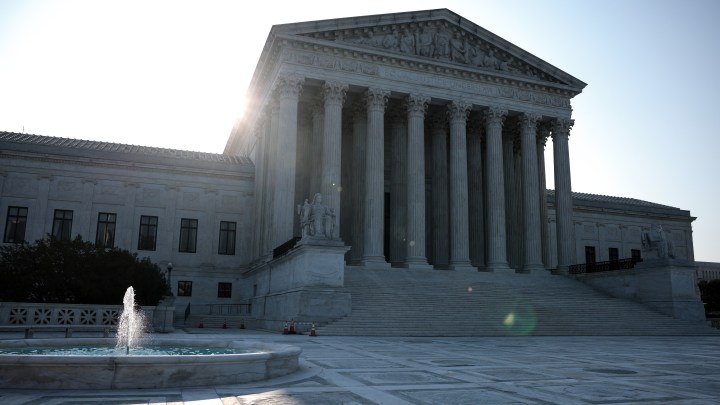
Supreme Court blocks eviction moratorium as aid trickles out
Supreme Court blocks eviction moratorium as aid trickles out

The U.S. Supreme Court blocked the latest eviction moratorium from the Centers for Disease Control and Prevention late Thursday. The Biden administration had extended protections for renters in areas with “substantial” and “high” levels of COVID-19 through Oct. 3. The court ruled that the CDC had overstepped its authority in imposing a blanket moratorium.
The ruling dashed the Biden administration’s hopes of buying more time for billions of dollars in emergency rental assistance to reach tenants and landlords. Earlier this week, the Treasury Department said that as of the end of July, just 11% of the $46.7 billion allocated by Congress had been paid out.
Deirdre Thomas first applied for rental assistance in Dekalb County, Georgia, back in February. She’d had to stop working as an insurance broker when she lost her child care because of the pandemic. Eventually, she learned her application had been lost in a cyberattack. Thomas is now about $25,000 behind on rent and utilities and applied again last month.
“I actually just received an approval yesterday in my email, thanks to the Dekalb County legal aid assistance,” she said. “It’s been a bumpy ride, if I can say so myself, but everything worked out in the end.”
Thomas’ case is just one example of the long delays in getting rent relief to the people who need it, said Lindsey Siegel, director of housing advocacy at Atlanta Legal Aid Society, which is helping the county distribute aid.
“We’re talking to landlords and tenants every single day who are panicked on both sides because the money hasn’t gotten to them yet,” she said.
Some of it is the slow process of getting relief programs up, running and fully staffed, Siegel said. Many low-income tenants also don’t have access to computers and scanners to file the necessary paperwork. Housing advocates say many who need the aid don’t know about it or think they won’t qualify.
States like Texas and Virginia are doing pretty well getting the money out, said Diane Yentel with the National Low Income Housing Coalition. But about 15 states — including Alabama, South Carolina and Wyoming — have spent less than 5% of their money.
“We have found that many of the slower spenders for emergency rental assistance, especially the ones that are lagging furthest behind, are the same programs to have overly complicated and complex application systems, to require burdensome documentation,” Yentel said.
She worries that Thursday’s Supreme Court ruling could lead to a wave of evictions. About 8 million adults are behind on their rent, according to the latest U.S. Census data.
Carisa Hatfield, a staff attorney with the Homeless Persons Representation Project in Baltimore, said that 20,000 households there are waiting for rental assistance.
“I’ve definitely had to call a number of my clients today who were covered under the CDC order and tell them that they are no longer covered,” she said.
This week, the Treasury Department issued new guidance to try to speed up the process of getting relief out by cutting some of the red tape to qualify.
There’s a lot happening in the world. Through it all, Marketplace is here for you.
You rely on Marketplace to break down the world’s events and tell you how it affects you in a fact-based, approachable way. We rely on your financial support to keep making that possible.
Your donation today powers the independent journalism that you rely on. For just $5/month, you can help sustain Marketplace so we can keep reporting on the things that matter to you.











